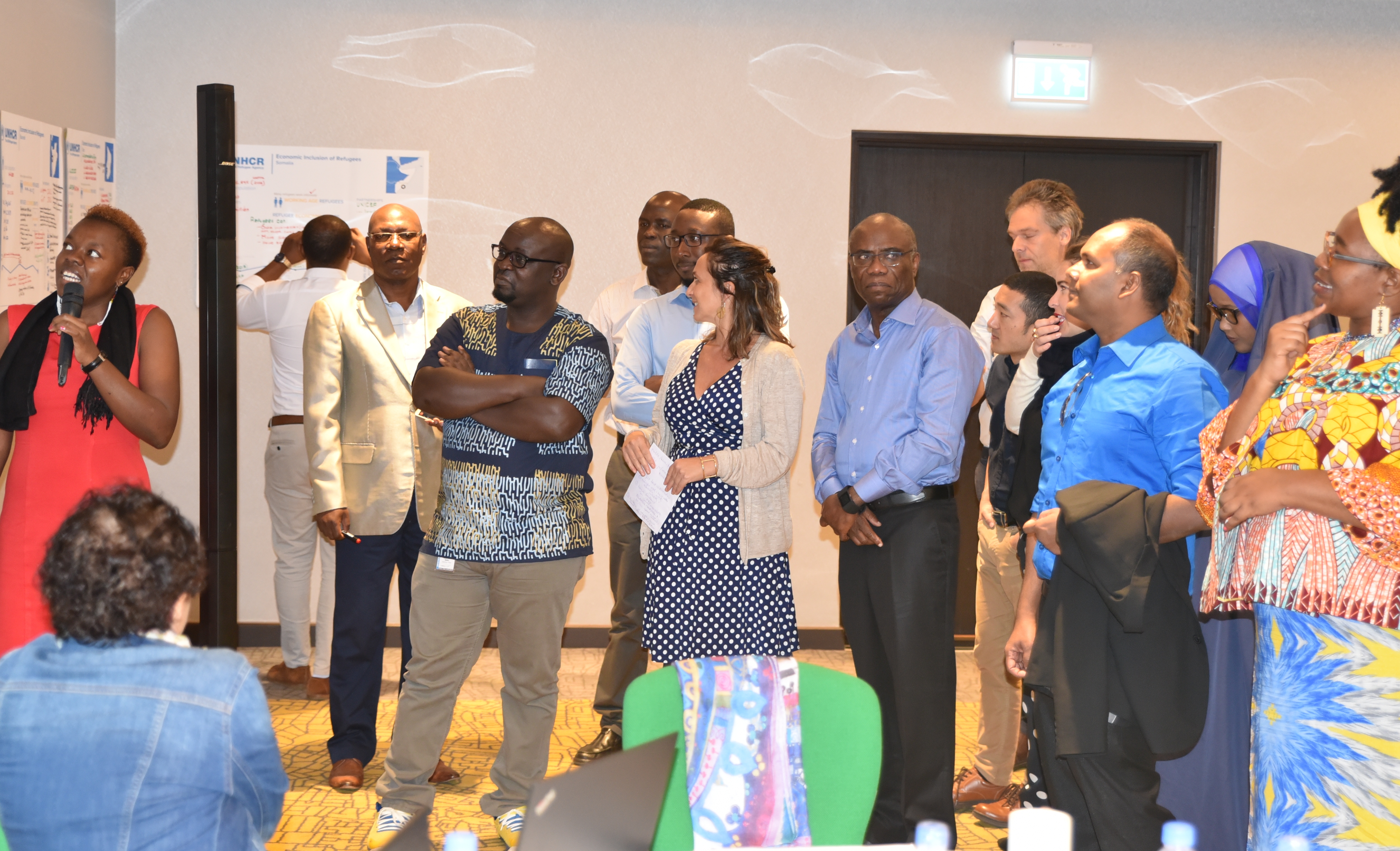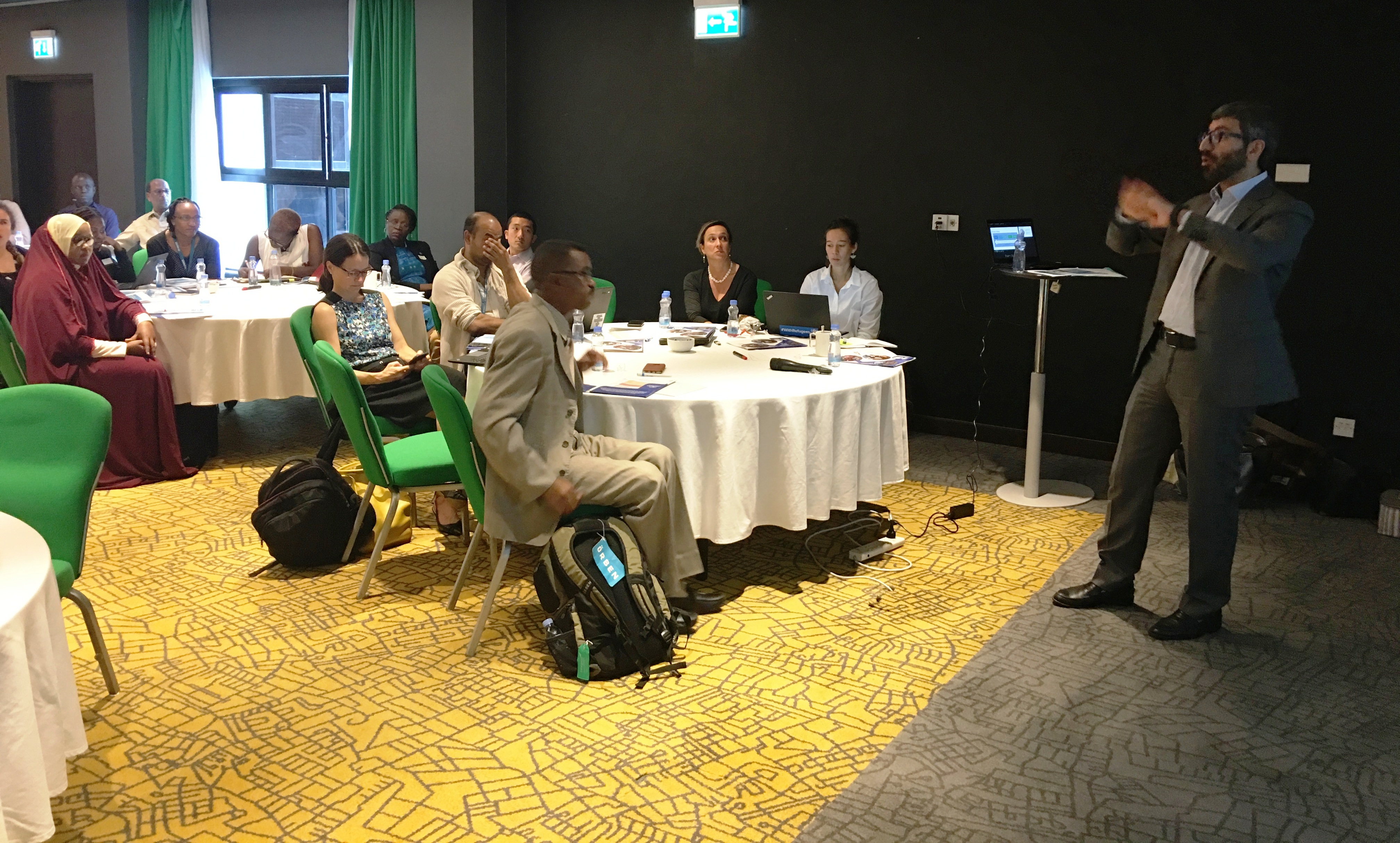East, Horn, and Great Lakes region refugee livelihoods workshop takes place in Nairobi
“When refugees are included in the economic sphere as consumers, producers and business owners/employers and employees, opportunities are created for the whole locality hosting refugees,” Ziad Ayoubi, UNHCR’s Head of Livelihoods and Economic Inclusion
A workshop on creating livelihoods for refugees in East Africa, Horn of Africa and the Great Lakes, recently took place in Nairobi. The workshop brought together UNHCR, the UN Refugee Agency staff from 13 countries.
The staff were drawn from UNHCRs livelihoods division, and UNHCR economic development experts, and professionals, working on the Comprehensive Refugee Response Framework, known as CRRF. The CRRF is a new approach that calls for greater support to refugees and the countries that host them. https://www.unhcr.org/comprehensive-refugee-response-framework-crrf.html
The workshop looked at how economic inclusion for refugees could be achieved. This includes job creation, encouraging business and entrepreneurship, and providing cash based humanitarian and development interventions to reducing poverty and increasing livelihoods and self-reliance among refugees?
UNHCR’s Head of Livelihoods and Economic Inclusion, Ziad Ayoubi, said that UNHCR has the critical role of strategically convening and facilitating engagement of economic development stakeholders to support countries hosting refugees.
“Building livelihoods and economic self-reliance upholds the dignity of the refugees, builds their resilience, supports the local economy and helps refugees graduating out of assistance,” he said.
He noted that for this to be achieved, collaboration between humanitarian and development players as well as the involvement of the private sector is required.
Economic inclusion of refugees is critical in supporting two of the objectives of the Global Compact on Refugees which was presented and agreed at the UN General Assembly meeting on December 17. The Global Compact on Refugees centers on countries to take responsibility of the displaced communities, and on building and enhancing opportunities for self-reliance among refugees. https://www.unhcr.org/towards-a-global-compact-on-refugees.html
UNHCRs initiative Made51 – which centers of promoting the traditional artisanal skills of refugees was discussed. MADE51 provides refugee artisans with a means to market their crafts worldwidehttps://www.made51.org/
During the workshop, the role of UNHCR vis a vis that of other actors was discussed in details including UNHCR’s strategic role of engaging economic development stakeholders to support countries hosting refugees.
According to Ziad Ayoubi, for refugees to be able to earn and spend the way all human beings do in any given country, the enabling environment is critical and it is dependent on legal frameworks that give access and rights such as right to work, own, rent, freedom of movement, and access to services.
He added that when refugees are included in the economic sphere as consumers, producers and business owners/employers and employees, opportunities are created for the whole locality hosting refugees.


